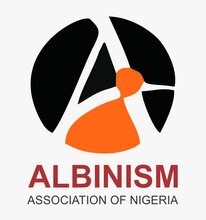In solidarity with the global movement, the Albinism Association of Nigeria (AAN) stand united today, February 4th, on International Cancer Day, under the theme “Close the Care Gap.” We celebrate the incredible progress made in cancer prevention, diagnosis, and treatment, while acknowledging the stark inequities that still leave countless mmbers of albinism community vulnerable.
Despite our nation’s resilience and strength, cancer remains a leading cause of death and suffering. Globally, cancer ranks as the primary cause of mortality, accounting for an approximate annual toll of 10 million lives. This astronomical figure emphasises the critical nature of international initiatives to combat the disease.
In this breath, International Cancer Day 2024 serves as a sobering reminder of the teamwork needed to address this worldwide health issue.
The distribution of the burden of cancer is not uniform. Developing and middle-income nations encounter substantial obstacles when it comes to obtaining critical cancer prevention, diagnosis, and treatment services. It is essential to address these disparities in order to attain health outcomes that are equitable.
For persons with albinism, this disease is a tougher challenge. It quickly kills if left untreated. A minimum of five individuals have been diagnosed with skin cancer in every state of the federation of Nigeria. Each month, we lose patients with thid evil and painful illness. Cancer patients require treatment immediately.
Early detection is essential for the effective treatment of cancer. Cure probabilities are significantly increased when cancer is detected and treated in its early stages.
This year’s theme “Close the Care Gap.” focuses on reducing inequalities in cancer prevention, diagnosis, treatment, and care.
Persons with albinism, especially those residing in marginalised communities, encounter substantial obstacles in accessing high-quality healthcare. We are faced with restricted availability of screening and early detection initiatives despite the critical nature of early detection in ensuring successful treatment outcomes, numerous individuals are uninformed about or lack the necessary resources to participate in these vital examinations.
The exorbitant expenses associated with cancer treatment can be debilitating, compelling patients to forego care and plunging families into destitution and the scarcity of specialised medical facilities, equipment, and adequately trained personnel poses a substantial obstacle to obtaining the highest quality of care.
As we reflect on the progress made and acknowledge the challenges that persist, let us recommit ourselves to the fight against cancer. We use this medium to call on the Nigerian government towards essential moves to address these disparities in order to attain health outcomes that are equitable.
We are making some recommendations that we hope will bring much succour to our collective requests. We request the Nigerian government to:
- Fund public health education campaigns: Communities need to learn about cancer prevention, early detection, and risk reduction.
- Promote early detection through inexpensive and equitable cancer screening programmes nationwide.
- Subsidise cancer treatment costs: Offer financial aid and healthcare insurance to sufferers and their families with a core focus on persons with albinism.
- Build and strengthen healthcare infrastructure: Fund well-equipped cancer treatment centres and train additional oncologists, nurses, and other healthcare professionals.
- Prioritise research and development: Fund local and worldwide cancer therapy and diagnostic research to make it cheaper and more effective.
The cancer care gap must be closed for social reasons. Through collaboration, government, healthcare providers, civil society organisations, and people can deliver quality cancer care to all Nigerians, regardless of background or geography.
Finally, let us recommit to the fight against cancer as we take stock of our accomplishments and recognise the obstacles still standing. Every individual has a part to play, whether it be through global advocacy, community involvement, or personal lifestyle decisions. By banding together to fight cancer, we can work to build a society in which everyone has access to good treatment, early detection, and prevention, and the burden of the disease is lessened.
Bisi Bamishe
President,
Daniel Adeyi
Secretary



